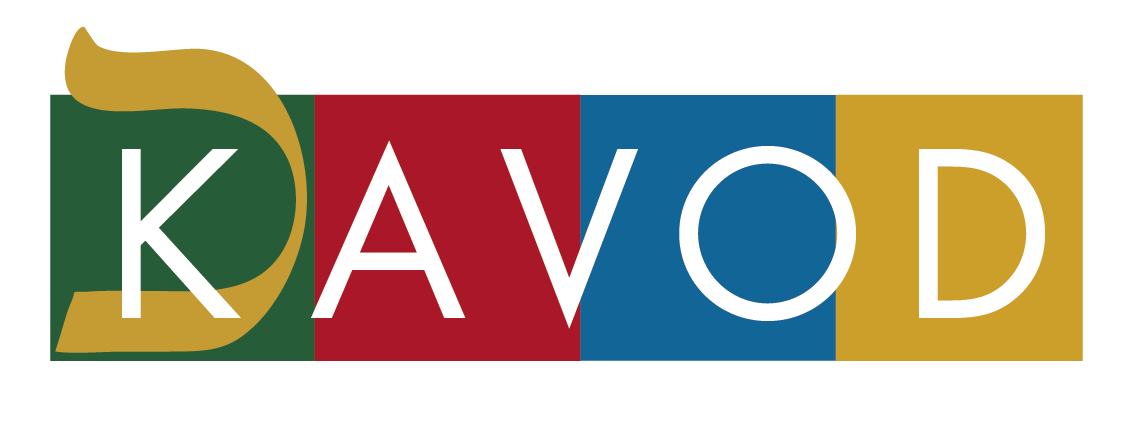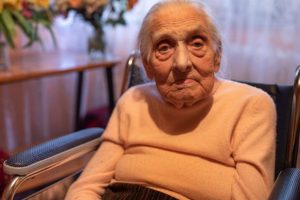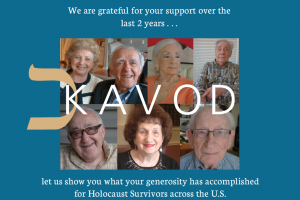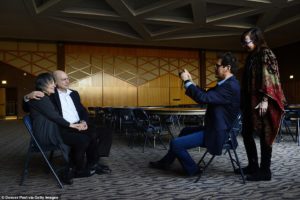Filling The Gap
Local JFS agencies join with national initiative to help survivors

Before covid, the number of Holocaust survivors in the United States was estimated at about 80,000. That number is likely to have decreased. But sadly, even as survivors’ numbers decrease, their needs increase. Some of those needs are common to an aging population, and some are unique to survivors.
But whatever their needs, survivors “deserve to live the remainder of their lives comfortably and with dignity,” said Amy Israel Pregulman of Denver, who, with her husband, John, created the nonprofit Kavod in 2015.
“Our mission is to provide emergency aid to Holocaust survivors in need,” Ms. Pregulman said. Right now, more than one-third of survivors in the United States are estimated to be living at or near poverty levels, a situation she calls “unconscionable and unacceptable.”
In 2019, Kavod joined the Seed the Dream Foundation to create the Shef (Survivors of the Holocaust Emergency Fund) initiative to reach even more survivors, working closely with Jewish Family Service and other organizations that help this vulnerable population. One of those groups is the Jewish Federation of Greater MetroWest, which joined the coalition about a year ago.
Today, the Jewish Family Service of Central New Jersey and the Jewish Family Service of MetroWest also are part of the initiative. Working with national philanthropic partners and local donors, the service agencies respond directly to survivors’ needs in nine emergency areas: food, medical, dental, vision, urgent home needs (utilities, rent, repairs), emergency home care, transportation, essential deliveries, and PPE.
By creating partnerships with the community, not only is the initiative raising awareness, but it is generating new dollars to meet survivors’ needs, Ms. Pregulman said. And one hundred percent of that money goes to survivors, she added.
Kavod started small. The Pregulmans now live in Denver; John is from Chattanooga and Amy, whose working career centered in the Jewish nonprofit world, is from Memphis. She now works full time as Kavod’s executive director.
“We began as a small organization, and most of the aid we gave was in the form of gift cards,” Ms. Pregulman said. “When we were three years into it, we began a partnership with the Seed the Dream Foundation and co-created the Shef initiative. The need is growing every day, and we have a limited time to support this vulnerable senior community.”
Ms. Pregulman said that her husband has been photographing survivors since 2012, and that is how the couple came to be involved with their welfare. “He would photograph and fall in love with these people,” she said. “When he was in Orlando, taking a picture of a survivor in her home, she offered him some food. She walked to the kitchen and opened the fridge. There was nothing in there.
“She explained that her air-conditioning broke and she had to make a decision between fixing it and buying food.”
“When we heard that, we were taken aback. We started doing due diligence and spoke to agencies, organizations, anyone who had information. There was a lot there, but much more was needed. We thought maybe we could do something.”
Marcy Gringlas, president and co-founder of the Seed the Dream Foundation, pointed out that “the survivors’ unmet needs far outweigh the resources available to cover these emergency services.” That, she said, can be remedied only by working collectively. “Every day, we lose more than 40 Holocaust survivors, and yet every day we continue to see hundreds of new requests for care. There is no time to waste.”
Some 30 communities now participate in the Kavod Shef coalition, and Ms. Pregulman said she believes that New Jersey has the most participants, even though other states, including New York and Florida, have more survivors.
The money the coalition raises is matched one to one by Kavod Shef’s National Funders Coalition, led by the Seed the Dream Foundation. Every community has an account. The funds come to Kavod, which distributes and manages the funds. “The community agency understands what their specific needs are and sees these dollars as a secondary resource to help fill the gap between existing resources and emergency needs,” Ms. Pregulman said.
“Everything we do is confidential,” she continued. “In 2020, with the Kavod Shef initiative, we filled 17,000 emergency requests. We can do as many as we need to.”
According to local agencies, that help is much appreciated.
Debbie Rosenwein, manager of Holocaust services at Jewish Family Service of Central New Jersey, said, “We have been able to help our survivors receive additional homecare, which has enabled them to remain at home in dignity, especially when the virus was so heavily transmitted through long term care facilities. Kavod Shef also enabled our survivors to receive emergency assistance with errands and PPE, due to the isolation and prolonged quarantine. In addition, we were able to provide our food insecure survivors with grocery store gift cards.”
Liz Levy, coordinator of Holocaust Services at Jewish Family Service of MetroWest, also appreciated the coalition’s word. “In 2020, Kavod Shef allowed us to say ‘yes’ to the emergency needs of over 150 Holocaust survivors in our community… The generous funding of Kavod Shef allowed JFSMW to quickly pivot to provide grocery and meal deliveries, increased homecare, and emergency medical and dental care that was delayed by covid-19, as well as transportation and home repairs.”
In addition, the Kavod Shef hotline allows survivors who are not in touch with their local agencies to have a place to call to begin the process of gaining support. The hotline number is (720) 295-8484.
According to Kavod’s website, as of December 2020 Mr. Pregulman had taken 1174 survivor photos in the United States, Japan, Poland, Israel, and the Czech Republic. He gives the photos to the survivors and their families “in an effort to honor and preserve their legacy.” His photography gig is an act of love, his wife said. His day job is as a business consultant.
“It’s truly a privilege to meet and hear the stories from these people, and see them for who they are today,” Ms. Pregulman said. “It’s a triple privilege to be able to offer people dignity, to be able to say yes.” The couple do not have any family members who are survivors. “It comes down to a sense of being called to do it,” she said. “We feel a responsibility to step up and do something when we so clearly understand the need.”
What are survivors’ greatest needs?
“It’s a complex question,” Ms. Pregulman said, and it starts with the basic human need for food and the ability to stay in their own homes and not face the trauma of being moved to a facility. “The other need is for connection, to not be forgotten, for their stories to be heard and for them to feel seen,” she said. “Especially during the time of covid isolation. It’s a complex mixture.”
Click here to view the original article.




